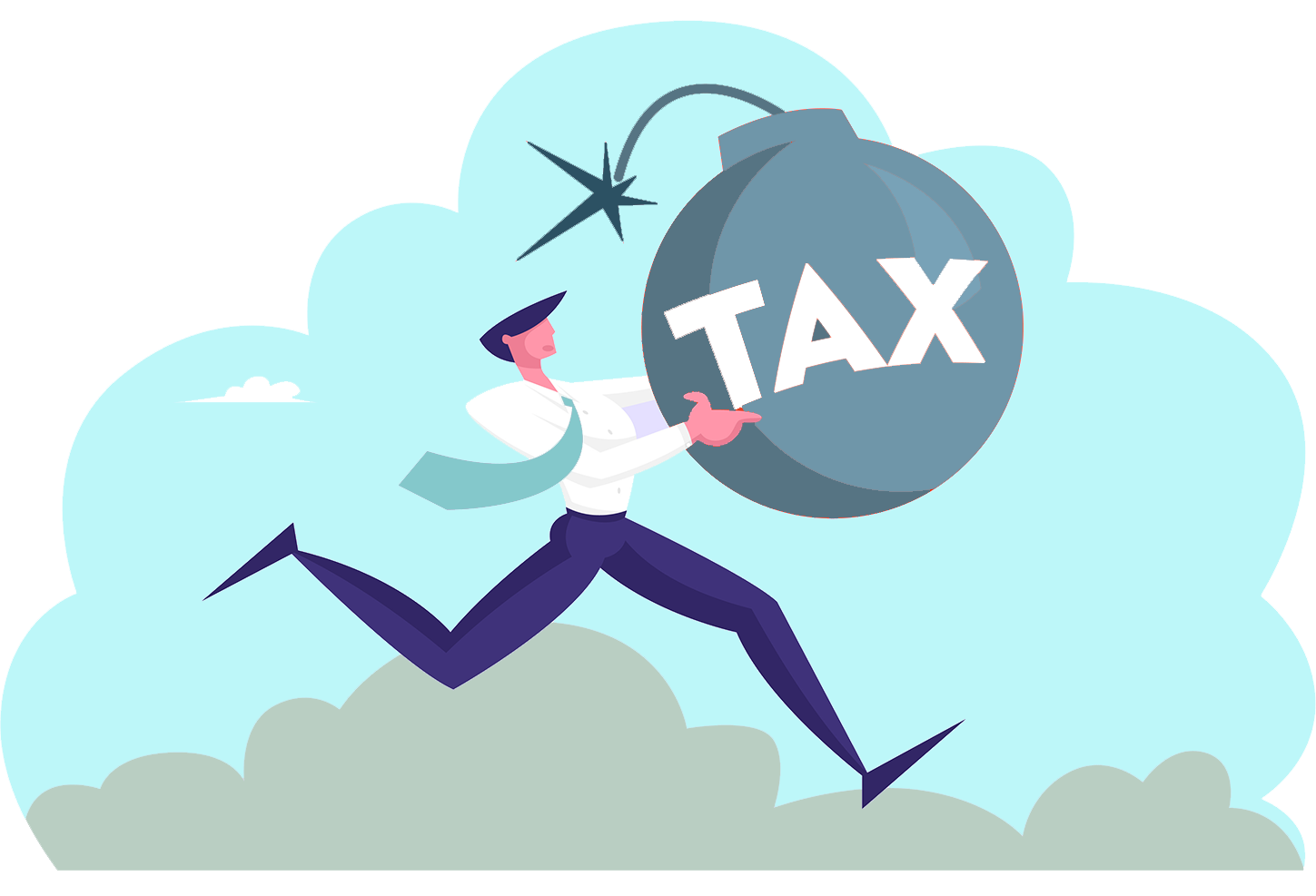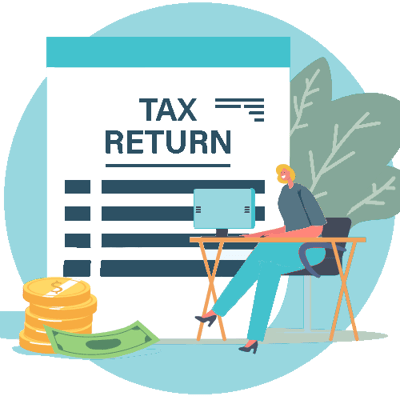When Do You Start Paying More Tax on Your Superannuation?
A breakdown of Division 293 Tax and When It Applies
Superannuation tax is probably not the type of...
By: Emma Baxter on Jul 1, 2022 1:57:51 PM

There are a lot of benefits to working for tech companies: breakfasts and lunches, gym and health cover; and even very generous equity packages. You work hard, and you earn hard. But are you prepared for the tax consequences when your employer pays you in equity, like company shares?
Without the guidance of a qualified tax advisor, company share schemes can have a rollercoaster of tax implications that are never fully understood by employees and leave them unable to enjoy the ride. We want to bust some myths and provide clarity so employees can confidently make decisions for the benefit of their own future and financial wellbeing.
This information does not constitute individual tax advice and is general in nature. We recommend you seek independent personal tax advice before applying any of these strategies.
Imagine receiving a large bonus from your employer and having the thrill of your hard-earned reward pulled out from under you once you realise how much of that will actually be going to the tax office. It’s happened to more people than you might think. After receiving the payout from their share-based bonus, and visiting the tax agent for their annual tax return, it’s not uncommon for some employees to discover they actually owe tens of thousands of dollars to the Australian Tax Office. So, how does one avoid the shock, anger and steep learning curve of discovering their tax debt without having to trawl through the entire ATO website?

Let’s break down the things that influence how much you need to pay in tax:
The first step is to understand what makes up your salary.
To help illustrate the things to consider, we’ll use “Sarah”, who works as a senior sales executive for a technology company in Australia. Her base salary is approximately $105,000 but she also receives commissions and bonuses that tend to vary according to her performance. In the 2021 financial year she earned $125,000 in commissions and bonuses, on top of her base salary.
Sarah’s salary + commissions = $230,000.
Sarah’s company provides Private Health, a Fitness pass, and other benefits. To Sarah, these are perks she receives because she works for a great company, but to the ATO, this all counts as taxable income.
The ATO does not allow employers to provide free benefits to some and not to others. Non-deductible benefits (like Private Health Insurance and fitness benefits) can be taxed, just like income.
This is different to if Sarah receives a motor vehicle allowance that requires her to drive to clients she may be able to offset this allowance with allowable deductions.
Sarah’s salary + commissions + allowances = $238,000
This puts Sarah in the highest tax bracket of $51,667 plus 45% for every dollar after $180,001 for the 2022 financial year, and she also has to pay a Medicare Levy of 2% of her taxable income. Therefore, her company should be withholding $82,527 of tax to cover her income.
If this sounds like a lot, it’s worth looking at how much tax you actually pay, which then puts you in a better position to determine what to claim as a deduction to reduce that amount.
Expenses that you incur to perform your job are claimable as tax deductions.
Like lots of Australians, Sarah worked from home during the COVID lockdowns. She didn’t keep receipts of the monitor or desk she bought to set up her work-from-home space so she could only claim Working From Home expenses using the ATO rate of 80c per hour.
Sarah worked 37.5 hours per week and throughout the year took 3 weeks holiday, had 8 public holidays and 3 sick days (yes, she has to submit that level of detail for the ATO). In total, she worked from home for 1,955 hours in that year. At 80c per hour, Sarah could only claim $1,408 in working from home deductions (If she took more care of her receipts, she may have been able to claim more!).
| COVID - 80% | |||||
| Particulars | Hours per day | # of days | Total | Work % | Claim |
| Hours per day | 7.50 | 261 | 1,955.36 | 80% | 1,564.29 |
| Less: | |||||
| Public Holidays | 8 | 8 | 60.00 | 80% | 48.00 |
| In-office Days | 8 | - | - | 80% | - |
| Annual Leaves | 8 | 18 | 135.00 | 80% | 108.00 |
| Total Claims | 1,408.29 | ||||
While it’s awesome for employees to have the opportunity to own shares in the company's growth, the tax implications of their equity can make things a little more complicated and can lead to tax bill shock.
Sarah was issued unvested shares and after a certain period of employment had passed, a percentage of those shares would vest, meaning they are officially Sarah’s and she can keep or sell them as she wishes. Shares are viewed as income by the ATO and that means they are a form of taxable income that gets tax applied in your tax return.
Over the 2022 financial year, Sarah had the value of $60,000 in shares vest. Because she was already in the highest tax bracket, that meant additional tax of $28,200.
It’s important to understand that any income from vested shares will be taxed (and it helps to save for it!), so we recommend proactively looking at your employee share scheme vesting schedule to determine if you’ll have vested shares in the next tax year.

Sarah got a shock and didn’t have enough saved to pay her $28,200 tax bill, so she had two main options:
When selling an investment asset like the company shares you own (i.e. any shares that have vested), this creates another tax event called a Capital Gains Tax Event. And there are CGT rules to look at.
Because company shares fluctuate in value over time, Sarah needs to see if she will make a profit or a loss on her shares.
If on the day she sells her shares the price drops, she will make a loss. (For example, if the value of Sarah’s shares at vesting date was $35 but the value of 1 company share on the day she sells it is $32 then she will incur a $3 loss on each share.)
To pay her tax bill, Sarah would need to sell 881 shares at $32 a share and incur a $2,643 loss. This loss will be recorded in her tax record to offset against any future capital gains.
If on the day she sells her shares, the price has increased, Sarah will make a profit. (For example, if the value of Sarah’s share at vesting date was $35 but the value of 1 company share on the day she sells is $38 this is a profit of $3 per share.)
To pay her tax bill, Sarah needs to sell 742 shares and would make a profit of $2,226 on the sale.
If she held these shares for less than 12 months, she will pay tax at a personal tax rate of 45% + 2% Medicare Levy on the profit resulting in $1,046 in capital gains tax.
If Sarah held these shares for more than 12 months, the CGT rules mean she gets to apply a 50% discount on the tax she pays on the profit. She will pay tax at her personal tax rate of 45% + 2% Medicare on only 50% of the profit resulting in $523 in capital gains tax.
Choosing this option means timing is everything and Sarah would need to pay close attention to fluctuations of her company’s share price.
As soon as Sarah lodges a tax return and the ATO makes her aware of her tax debt, they automatically enter the employee into a quarterly Pay As You Go Instalment (PAYGI) program based on her most recently lodged tax bill. An estimate of a quarterly tax payment amount must be paid by the 28th day after the end of each quarter.
Pay as You Go Instalment (PAYGI)Payment Deadline Schedule |
|
| January - March |
Due 28 April |
| April - June |
Due 28 July |
| July - September |
Due 28 October |
| October - December |
Due 28 January |
This effectively means the ATO is asking her to make proactive payments towards her upcoming year's tax debt.
Sarah or her tax accountant have the ability to vary each instalment amount of tax required against income earned. In the 2022 budget it was announced the ATO is changing their PAYGI policy to increase the accuracy of PAYG Instalments against the income in each quarter.
This data comes from an employer's Single Touch Payroll (STP) reporting each pay cycle, and we are yet to see how this is assessed in the case of vested shares.
Sarah can register with a tax agent to extend the time she has to lodge her tax return. Instead of having to submit it on the 31st of October, she will have until 15th May the following year.
Sarah can ask her tax accountant to prepare a tax plan that also looks at her following year's tax so she can save and structure a payment plan for her 2021 tax with the ATO while planning her upcoming estimated PAYG Instalments for her 2022 tax.
A good accountant will also consider Sarah’s short and long-term goals and discuss other options to help her make her money work harder and smarter for today and into her future – from deductible super contributions, assessing for Division 293 Tax, to accessing schemes that may help Sarah purchase her first home.
Tax can seem complicated but registering with a good accountant can leave you walking out of their office feeling empowered with a better understanding of and practical and achievable next steps. Tax planning with a qualified, proactive accountant can help people like Sarah take better control of their finances and enjoy their hard-earned money without the risk of nasty surprises in their next tax return.
YOUtax is an award-winning digital accounting firm on a mission to make tax and financial wellness services easily accessible to everyone who needs it. We partner with organisations to provide time-poor employees across Australia with an easy-to-access and easy-to-understand Financial Wellness Program that includes education, tax planning and advisory services.
Winners of the 2021 Australian Accounting Awards Innovative Firm of the year and awarded Xero’s Innovative Partner of the Year for 2022.
Superannuation tax is probably not the type of...
Making personal contributions to super is one way you can minimise your tax bill and may leave you...
The constant evolution and...